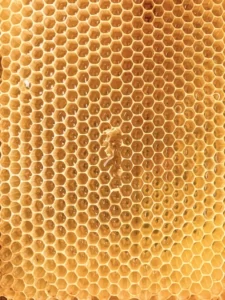Table of Contents
- Introduction
- Background: Cystic Fibrosis and Bacterial Respiratory Infections
- Objective of the Study
- Trial Design and Methodology
- Primary and Secondary Outcome Measures
- Manuka Honey as an Antimicrobial Agent
- Implications for Antibiotic Therapy and Infection Control
- Data Collection and Analysis
- Safety Measures and Adverse Events
- Conclusion
Introduction
Manuka honey has gained significant attention for its potential health benefits, particularly in the realm of respiratory health. In this article, we will delve into the use of manuka honey-infused sinus rinse solutions in patients with cystic fibrosis (CF) suffering from sinusitis. We will explore the efficacy of manuka honey sinus rinses compared to standard rinses, as well as the potential for molecular bacterial diversity analysis to provide comprehensive information beyond traditional microbiological methods. Additionally, we will discuss the feasibility of recruiting participants for this type of trial, ensuring compliance with the protocol, and informing future studies.
Background: Cystic Fibrosis and Bacterial Respiratory Infections
Cystic fibrosis (CF) is a genetic disorder that affects the salt-water balance across epithelial membranes, leading to thick and sticky mucus in the respiratory tract. This mucus becomes a breeding ground for opportunistic bacterial infections, causing symptoms and complications in CF patients. These infections often become antibiotic resistant, making them difficult to treat and negatively impacting lung function and quality of life.
The upper respiratory tract, including the sinuses, can act as reservoirs for these bacterial pathogens. As part of clinical care, sinus rinses are commonly used to alleviate symptoms in the upper airway. However, the efficacy of these rinses and their impact on bacterial load and community composition is still being explored.
Objective of the Study
The objective of this pilot study is to determine the feasibility of recruiting participants for a trial involving manuka honey sinus rinses in CF patients. The study aims to assess participant compliance with the protocol and determine the effect of manuka honey sinus rinses on symptoms associated with sino-nasal disorders, as well as any corresponding improvements in quality of life. Furthermore, the study aims to measure the effects of manuka honey on bacterial load and community composition in various samples associated with the nasal cavity and CF-lung. The results will help guide the design and feasibility of future multicenter studies on manuka honey sinus rinses and their effectiveness in alleviating symptoms in individuals with poor sino-nasal scores. Additionally, understanding beneficial changes in community composition could inform the development of manuka honey as a potential nebulized product.
Trial Design and Methodology
This study is a single-blinded randomized feasibility trial that will estimate the efficacy of manuka honey sinus rinses on symptoms associated with sino-nasal disorders in CF patients. Recruitment will take place at the All Wales Adult Cystic Fibrosis Centre (AWACFC) at University Hospital Llandough. The trial will span an 18-month period, starting in January 2019 and ending in October 2021 (with a pause from March 2020 to July 2021 due to COVID).
The study will include approximately 30-40 CF patients, randomly assigned to either the control or intervention group in a 1:1 ratio. Both groups will follow a sinus rinse protocol for 30 days (± 7 days). The control group will use the standard of care rinse, while the intervention group will use a manuka honey rinse. Samples will be collected at day 0 and day 30 to assess primary and secondary outcome measures.
Primary and Secondary Outcome Measures
The primary outcome measure for this study will be a change in the 22-item Sino-Nasal Outcome Test (SNOT-22) score, which assesses the severity of symptoms associated with nasal disorders. Secondary outcome measures will include changes in quality of life (assessed through questionnaires), bacterial load and community composition, and sputum viscosity.
Manuka Honey as an Antimicrobial Agent
Manuka honey has a strong track record as an antimicrobial agent, inhibiting a wide range of opportunistic pathogens, including those that cause chronic infections in CF patients. Additionally, antimicrobial resistance (AMR) towards manuka honey has not been observed. By combining manuka honey with a nasal rinse procedure, it is anticipated that the upper nasal cavity could be “decolonized” of chronic pathogens.
Implications for Antibiotic Therapy and Infection Control
CF patients often rely on long-term antibiotic therapy to control bacterial infections, but this can lead to the emergence of antimicrobial resistance. Certain bacteria become difficult to remove once they infect the CF lung, and re-infection from various reservoirs is a common problem. The upper respiratory tracts, including the sinuses, act as major reservoirs for lung infections. Complete clearance of lung infections is challenging, and lung transplants are often limited to patients with controlled infection reservoirs. Therefore, there is a need for new, sustainable antimicrobial treatments for CF patients.
Data Collection and Analysis
Data collection will involve baseline measurements at day 0 and repeat measurements at the follow-up meeting on day 30 (± 7 days). Various validated tools and questionnaires will be used to assess symptoms, quality of life, and bacterial load. Samples collected, including nasal swabs, sputum, and sinus rinse effluent, will undergo conventional microbiological culturing, DNA extraction, and whole genome sequencing to determine bacterial diversity.
Safety Measures and Adverse Events
Adverse events (AEs) will be monitored throughout the study. AEs are defined as any untoward medical occurrences within the trial. Serious adverse events (SAEs) are those that result in death, are life-threatening, require hospitalization, cause persistent/significant disability, result in congenital anomalies, or have other medically important consequences. Any AEs or SAEs will be reported to the relevant ethics committee and the study sponsor within the appropriate timeframes.
Conclusion
The use of manuka honey sinus rinses in CF patients shows promise in alleviating symptoms associated with sino-nasal disorders. This pilot study aims to assess the feasibility and potential benefits of manuka honey sinus rinses, as well as their impact on bacterial load and community composition. The results will contribute to the development of future multicenter studies and the exploration of manuka honey as a potential treatment option for respiratory infections in CF patients.



